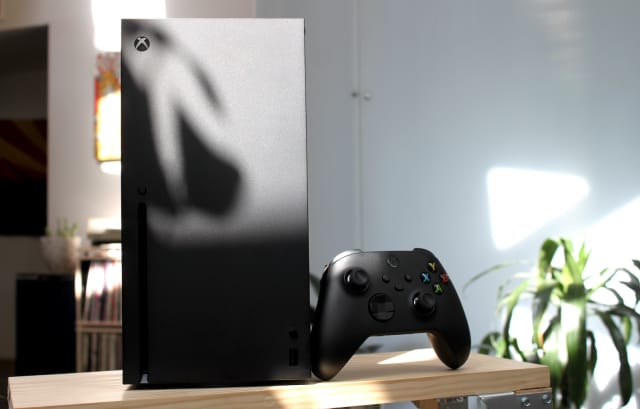It’s that time of year again. The time where are current phones start to look less appealing and archaic as brand-spanking new models start trickling in and teasing with more power, better speeds, and even more megapixels for our cameras. Leading the charge is Google’s new Pixel 5. Coming in at $699 it already has the jump on the competition in regards to affordability. That’s 30% cheaper on average than the other leading brand, the Galaxy S20 and the iPhone 11 Pro.
So, the price is pretty good, but does it offer the performance and features to contend with the big boys? Yes and no. In fact, the Pixel 5 is what I would call a very solid middle ground for someone looking to upgrade to high end device without obliterating their bank account. Sporting 2.4 GHz octa-core processor with 8 GBs of RAM and the Adreno 620 GPU, the Pixel 5 falls just a little behind the other two in raw speed, but offers power and efficiency in a familiar package.
DESIGN
In terms of form factor and overall aesthetic, the Pixel 5 is very similar to its Google branded brothers and sisters of the past few years. So, don’t expect any crazy or bold revision to the outer hardware. Of note is the rear-mounted Pixel Imprint fingerprint sensor and the square camera module sporting dual optics.
DISPLAY
The 90Hz refresh rate has made a return which may or may not be to some people’s chagrin. However, it does mean that you get the smoothness and clarity full HD-OLED display without the taxing drain on battery life.

CAMERA
The primary 12.2-megapixel lens is a mainstay in the Pixel brand; it’s been around since the Pixel 2 days, and Google mostly relies on software enhancements to continually improve its output.
The secondary lens is a new 16-MP ultrawide camera this time around; replacing the telephoto lens employed in last year’s version. Google was criticized by some for offering a telephoto lens with a very slight optical zoom advantage in the Pixel 4, rather than an ultrawide lens that might’ve been more useful to owners.
The Pixel 5 still benefits from Google’s Super Res Zoom tech, which employs artificial intelligence to digitally zoom without losing detail. Super Res Zoom is capable of producing some impressive results, often times indistinguishable from what you’d get using optical zoom, so the lack of dedicated optics isn’t much of a bother.
Night Sight is new to Portrait Mode as well as the Portrait Light feature that lets you adjust the light striking your face, even post capture. From within Google Photos app, you’ll be able to add Portrait Light effects to photos that have been collecting dust in your folders for ages. Rounding out the package are three new video stabilization modes that should help those that often find their footage ruined by shaky hands.

PERFORMANCE
Sporting a Snapdragon 765G chipset, the Pixel 5 is coming with a fairly powerful CPU. It’s not as quick as the Snapdragon 865 inside modern Androids however. In fact, it’s not even as powerful as the Snapdragon 855 inside the now-defunct Pixel 4 and Pixel 4 XL. Nevertheless, the Snapdragon 765G will be enough to support Google’s A.I. based features, like Call Screen, as well as the new Hold For Me function. With this feature, the Pixel 5 will be able to wait on the line for you when you’re on hold, and notify you when someone becomes available on the other end.
Below is a chart with a stat breakdown of the Pixel 5 versus its direct competition. What do you think? Interested? Already Pre-Ordered? Is the Pixel 5 even much of an upgrade at this point? Who knows. I suppose that’s entirely up to the consumer.
|
|
Pixel 5
|
Galaxy S20
|
iPhone 11 Pro
|
|
Pricing
|
$699
|
Starts at $999
|
$999 / $1149 / $1349
|
|
Dimensions
|
144.7 x 70.4 x 8 mm (5.7 x 2.8 x 0.3 inches)
|
151.7 x 69.1 x 7.9 mm (5.97 x 2.72 x 0.31 inches)
|
144 x 71.4 x 8.1 mm (5.67 x 2.81 x 0.32 inches)
|
|
Weight
|
151g (5.33 ounces)
|
163g (5.75 ounces)
|
188g (6.63 ounces)
|
|
Screen size
|
6 inches (152.4 mm)
|
6.2 inches (157.58 mm)
|
5.8 inches (147.32 mm)
|
|
Screen resolution
|
2,340 x 1,080 (432 ppi)
|
3,040 x 1,440 (563 ppi)
|
2,436 x 1,125 (458 ppi)
|
|
Screen type
|
FHD+ Flexible OLED
|
Quad HD+ Dynamic AMOLED 2X
|
Super Retina XDR OLED
|
|
Battery
|
4,080 mAh
|
4,000 mAh
|
Up to 18 hours of video playback
|
|
Internal storage
|
128 GB
|
128 GB
|
64 / 256 / 512 GB
|
|
External storage
|
None
|
micro SD
|
None
|
|
Rear camera(s)
|
Two cameras:
Ultrawide, 16MP, f/2.2
Dual-pixel, 12.2MP, f/1.7
|
Three cameras:
Ultrawide, 12MP, f/2.2
Wide, 12MP, f/1.8
Telephoto, 64MP, f/2.0
|
Three cameras:
Ultrawide, 12MP, f/2.4
Wide, 12MP, f/1.8
Telephoto, 12MP, f/2.0
|
|
Front camera(s)
|
8MP, f/2.0
|
10MP, f/2.2
|
12MP, f/2.2
|
|
Video capture
|
4K at 60 fps
|
8K
|
4K at 60 fps
|
|
SoC
|
Qualcomm 765G
|
Samsung Exynos 9825
|
Apple A13 Bionic
|
|
CPU
|
2.4 GHz octa-core
|
2.7 GHz octa-core
|
2.65 GHz hexa-core
|
|
GPU
|
Adreno 620
|
ARM Mali-G76 MP12
|
unnamed quad-core
|
|
RAM
|
8 GB
|
12 GB
|
4 GB
|
|
WiFi
|
Dual band, 802.11ac
|
Dual band, 802.11ac/ax
|
Dual band, 802.11ac/ax
|
|
Bluetooth
|
v5.0
|
v5.0
|
v5.0
|
|
NFC
|
Yes
|
Yes
|
Yes
|
|
Operating system
|
Android 11
|
Android 10
|
iOS 13
|
|
Other features
|
IP68 certified, USB-C, Qi wireless charging
|
IP68 certified, USB-C, WPC/PMA wireless charging
|
IP68 certified, Lightning connector, Qi wireless charging
|













